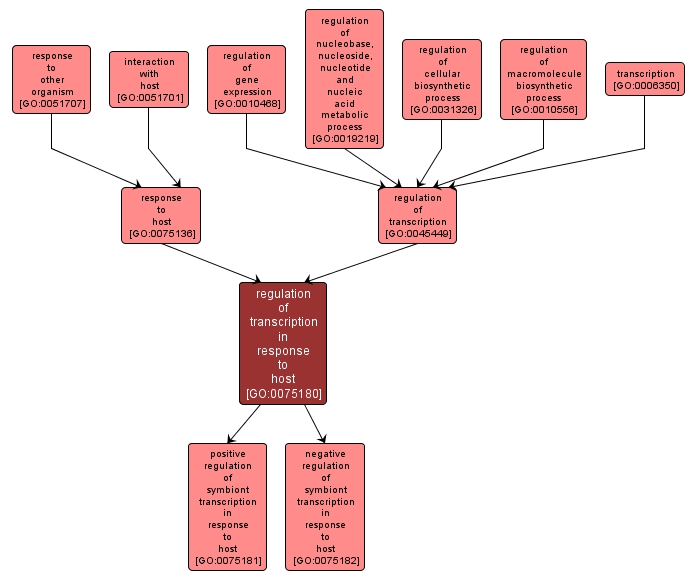GO TERM SUMMARY
|
| Name: |
regulation of transcription in response to host |
| Acc: |
GO:0075180 |
| Aspect: |
Biological Process |
| Desc: |
Any process by which the symbiont organism modulates the frequency, rate or extent of its transcription as a result of detecting molecules of its host organism. The host is defined as the larger of the organisms involved in a symbiotic interaction. |
Synonyms:
- regulation of symbiont transcription in response to host
|
|

|
INTERACTIVE GO GRAPH
|














